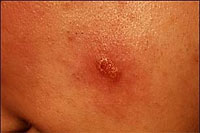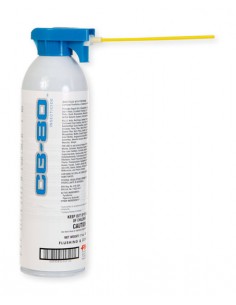Expert Help, Same-Day FREE Shipping & 60 Day Easy Returns - Since 1997
Bugs You Can't See That Bite
Something biting you cannot see? Everyone thinks you are crazy? Do you think bugs are crawling on your skin, in your hair, ears, nose or mouth? There can be many reasons why you think it's bugs. Just because you feel something crawling on you doesn't mean it's an insect....
Professionally Recommended Pest Products For Mite Control
Guaranteed Low Prices and FREE Shipping!
[table id=2 responsive=scroll responsive_breakpoint=tablet /] ![]()
Bugs You Cannot See That Bite
Bugs you cannot see that bite are a problem for many people. Bugs, bed bugs, mites, spiders, and other small invisible insects frequently get the blame and cause itching, scratching and worrying. This can lead to doing some really dumb things to try and kill something that is not there. You may have the sensation of something crawling on you that you cannot see. Something crawling on your skin, in your hair, in your eyes, nose and and ears.
Determining What's Biting
The feeling of something biting you is often caused by multiple factors including prescription medications. They can also be caused by skin disorders, aging, and allergies. It can lead to nervous disorders, excessive scratching, bleeding and paranoia. People have been known to go to extremes by spending thousands of dollars on pesticides, cleaning agents, etc. and never solving the problem. Others get "crazy" and apply pesticides to their skin and hair. People have also orally ingested pesticides when nothing else works - because they get desperate for a solution.
"The sensation of a bug crawling on you is often a side effect of Prescription Medications. These side effects can be made worse by combining certain medications with allergies, foods, alcohol and smoking."
The determining factor with any bug related problem is EVIDENCE - not a feeling or a sensation, but actual evidence. If you can see something that has legs, body parts, etc, or if you have welts or red bumps this may be evidence. No welts or bumps? It's not an insect. Sometimes, bugs you cannot see that bite are real. However, if you cannot see them, then chances are they don't exist. Invisible insects don't exist. There are no known insects that are completely invisible. Some insects or arachnids (spider family) such as mites are very tiny, but can still be seen with the naked eye. No see-ums can also be easily seen.
Before Applying Pesticides For Bugs You Cannot See
 Bug bite with oozing and swelling Before applying pesticides for bugs you cannot see that are biting you, you need to be absolutely certain that an infestation exists. If there are no bites or bite marks visible, then there is a 99% chance that it's not insect related. Do not apply pesticides of any kind unless you have a target pest that has been identified by a professional! If an insect bite is visible and there is real evidence (bite marks, bumps, redness, etc) then the insect needs to be identified before ANY pesticide is applied. Simply applying pesticides indoors to try and kill something you can't see could have serious implications on your health, your family or your pets. The danger is that over application of pesticides indoors is likely. If a problem with a biting bug is identified - for example, with bedbugs or mites, then the situation should be treated accordingly. However, if you cannot find any solid evidence that pests exist, then the application of pesticides INDOORS IS NOT RECOMMENDED. A trip to your family doctor and/or dermatologist may help uncover the real issue.
Bug bite with oozing and swelling Before applying pesticides for bugs you cannot see that are biting you, you need to be absolutely certain that an infestation exists. If there are no bites or bite marks visible, then there is a 99% chance that it's not insect related. Do not apply pesticides of any kind unless you have a target pest that has been identified by a professional! If an insect bite is visible and there is real evidence (bite marks, bumps, redness, etc) then the insect needs to be identified before ANY pesticide is applied. Simply applying pesticides indoors to try and kill something you can't see could have serious implications on your health, your family or your pets. The danger is that over application of pesticides indoors is likely. If a problem with a biting bug is identified - for example, with bedbugs or mites, then the situation should be treated accordingly. However, if you cannot find any solid evidence that pests exist, then the application of pesticides INDOORS IS NOT RECOMMENDED. A trip to your family doctor and/or dermatologist may help uncover the real issue.
"Setting off a "fogger", or using any pesticide is NOT recommended unless bugs can be found and professionally identified."
Most "legitimate" pest control companies will not spray or perform any treatment unless a target pest can be found. Treatment for insects and application of pesticides without a true target pest is illegal in many states. If you have bug bites and your doctor cannot diagnose any physical condition, then there are some things that you can do to help:
- Talk to your doctor if you are taking prescription medications. Change medications if advised.
- Place all clothing items in sealed plastic bags such as the AmCan Water Soluble Laundry Bag.
- Wash all clothing items in hot soapy water to kill insects.
- Vacuum and clean all floor surfaces.
- Wash all bedding and linens in hot soapy water.
- Have carpets and rugs professionally steam cleaned.
- Change soaps and shampoos when you bath or shower.
- Use Catchmaster 288i Professional Bug Traps placed around the home or room to capture insects for identification.
- Use CB 80 Aerosol to fog the room or home. Take precautions and read the product label before using foggers indoors.
- Use Sterifab to treat sofa's, mattresses, linens and other sensitive areas.
- Use moisturizers and skin lotions when you start itching.
NEVER SPRAY FLEA CONTROL OR INSECTICIDE PRODUCTS ON YOUR SKIN! Doing so could cause acute poisoning and could land you in the hospital, or even worse, cause death! Remember, pesticides are designed to kill. Don't use them on your body without a medical prescription or advice from your doctor.
Advice For Pest Control Technicians
If you can't find any target pest - don't treat. It's against the law and could end up in court. Some customers have an emotional or sensory issue such as an overwhelming fear of bugs that is the real problem. Other problems could be a change of medication, diet, skin disorders, allergies - the list goes on. The bottom line is that if an application of pesticides indoors is made without any visible AND CONCLUSIVE proof, you are opening yourself up for liability. Many court cases have been lost when the the pest company was only trying to help and gave in to the customers wishes. If no insect is involved, the delusion of their presence maybe the true problem. When confronted with this situation, do not put yourself into the position of making a medical or psychiatric diagnosis or recommendation. You are not a doctor (unless you hold a PHD). A general knowledge of the other causes of itches can be very helpful in reporting the absence of pests to the client. Another useful approach is to ask the client to collect the specimens on a piece of tape. Using a microscope, or even a cell phone, magnify the potential target pest to show what it is. Most of the time what the customer thinks is an insect is actually dirt, lint, dust, etc.
"If no pests capable of biting are found, then no pesticide application should be made. Explain that no evidence of bugs could be found and that certain medical conditions, chemical irritants or medications may cause itching."
NEVER suggest that the customer is crazy and to see a psychiatrist. Suggest that they see their doctor or a dermatologist who can investigate the possibility of some dermatologic problem. In many cases, the sensation of bug bites is real. The customer is not crazy, the sensation can be very real. The real cause needs to be determined by a qualified physician. In many cases, scratching and itching is the result of a skin disorder, or some dermatologic issue and is not insect related. In industrial situations where airborne particles or severe humidity changes might be involved, environmental changes may be needed to remedy the problem. If a family residence situation is involved, it could be any number of factors. Allergies or allergic reactions to food, medications, clothing, etc. are the most common. Whatever the problem, never attempt a pesticide treatment if no insect pest is involved. Remember that it is illegal to use a pesticide where no pest is present. In addition, treatment for a pest that does not exist is not ethical. Honesty is the best policy. To retain the confidence of the client, be frank in making a recommendation. Show continued interest in the problem, and offer to talk with the physician or others who might become involved. Treat the client with dignity, consideration, and patience.
Legal Concerns For Pest Control Professionals
If you are ever sued over bugs that can't be seen that bite, you will go to deposition first. During the deposition, you will be asked for copies of your license, your certifications, and anything that makes you an expert. Then you will be asked for a copy of your degree. A pest control applicators license does not make you an expert in a court of law. You will then be asked to provide a sample or pictures of the insect that you treated for with a complete diagnosis, identification (including species and subspecies). When you can't provide any proof of what you treated for, you are liable and guilty. Don't make this mistake by violate federal laws and end up in court!




